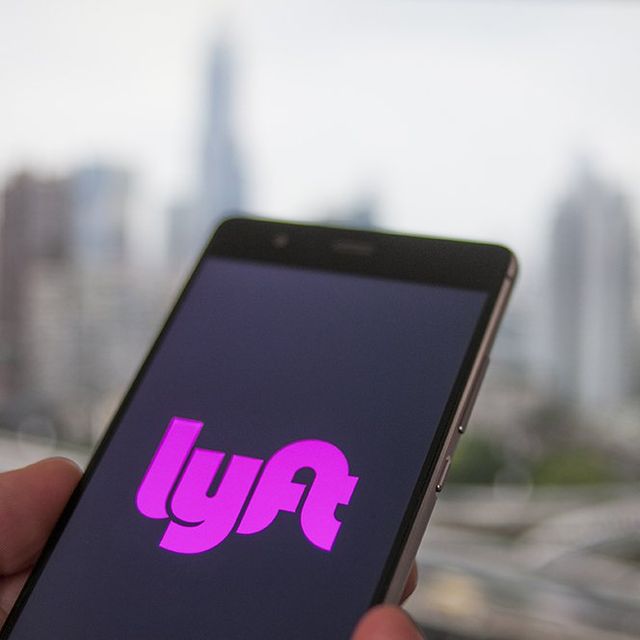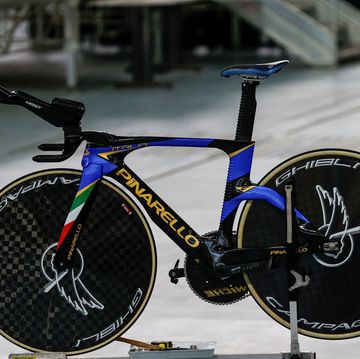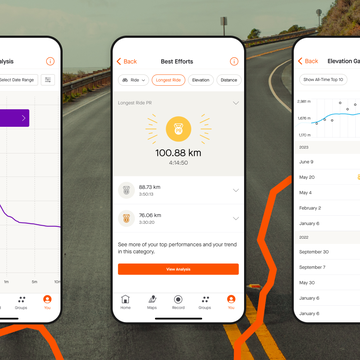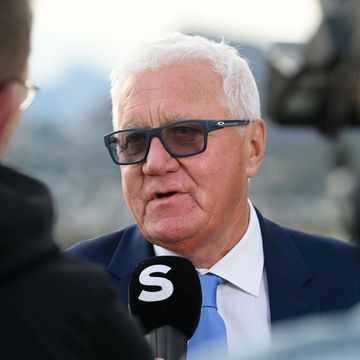Two weeks ago, Uber announced that it’s (kinda, sorta) throwing its weight behind bike share by partnering with Jump, a start-up that recently rolled out 250 dockless e-bikes in San Francisco. Although Uber won’t operate any bikes itself, some of its Bay Area users will now be able to locate Jump bikes in the Uber app.
Well, it didn’t take very long for Uber’s biggest competitor to get in on the action. The Baltimore Sun reports that Lyft, another ride-hailing company, will pay $270,000 to sponsor five Baltimore Bike Share stations for three years. In return, the area around each station will become a designated Lyft pickup zone, which basically means new signage and company logos on the kiosks.
“People now will know this is a place they can go for all forms of shared mobility,” Mike Heslin, Lyft’s Baltimore market manager, told the paper.
RELATED: I Rode Dockless Bike Share Around D.C. for a Week. Here’s What Worked—and What Needed Improvement.
Baltimore Bike Share could certainly use the extra scratch. The system temporarily shut down last fall after theft and vandalism hobbled its fleet. While Dallas has seen its its share of creative destruction against its newly launched dockless bike-share scheme, Baltimore’s is the only conventional, dock-based system so far to deal with these kinds of problems. (Before it became the first US city to adopt dockless bike share, Seattle's dock-based system shut down due to low ridership, not vandalism.)
Corporate sponsorships of bike share are nothing new. In fact, while many conventional systems involve some combo of public and private funding, systems often bear the names of corporate brands, sports arena-style. (Think Citi Bike in New York or Santander Cycles in London.) Dockless bike share, meanwhile, functions more on a Silicon Valley model: VC-funded start-ups enter a market, scale rapidly, and try to circumvent existing regulations.
RELATED: Marshawn Lynch Gives Dockless Bike Share its First Celebrity Endorsement
Much like Uber, whose new CEO is trying to earn some goodwill by signaling future support for bikes and public transit. It’s not clear the extent to which these ride-hailing companies will commit to bikes and the cycling lifestyle. Certainly, they still would rather we catch a ride rather than pedal to our destinations. And many urban planners argue that bike share, like other transportation services, ought to be considered a public good first and an investment opportunity second.
That Uber and Lyft feel compelled to get behind bike share, at least to some extent, shows that they think the concept is here to stay and that they should start thinking beyond cars as a way to reach their largely urban clientele.
In the meantime, every little bit helps: Baltimore Bike Share debuted in October 2016 with 200 bikes across 20 stations, and had plans to expand to 500 bikes and 50 stations by the following spring. After its unexpected but much-needed shutdown, it reopened last November with only a quarter of its original fleet.
Keep up with the latest cycling news by subscribing to our newsletter.
Matt is a reporter, writer, and editor who has covered bicycling since 2014, when he cofounded a small bike magazine called SPOKE in Philadelphia. His work has a particular focus on where the bicycle intersects with politics, culture, and technology.













